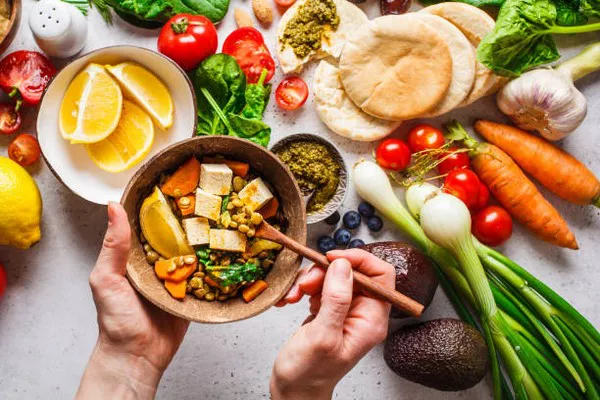Stage 3 kidney disease, also known as chronic kidney disease (CKD) stage 3, is a condition where the kidneys are moderately damaged. Proper dietary management is crucial at this stage to slow the progression of the disease and maintain overall health. This article provides a detailed guide on which foods to avoid and offers feasible fitness and weight loss suggestions to help manage the condition effectively.
Understanding Stage 3 Kidney Disease
Stage 3 kidney disease is characterized by a moderate decrease in kidney function, with an estimated glomerular filtration rate (eGFR) between 30 and 59 mL/min/1.73 m². At this stage, the kidneys are not filtering waste and excess fluids as effectively as they should. Managing diet is essential to reduce the workload on the kidneys and prevent further damage.
Foods to Avoid with Stage 3 Kidney Disease
High-Sodium Foods
Why Avoid: Sodium can increase blood pressure and worsen kidney function. Excess sodium also leads to fluid retention, which can strain the kidneys further.
Examples to Avoid:
- Processed Foods: Chips, canned soups, and frozen meals.
- Salty Snacks: Pretzels, salted nuts, and crackers.
- Restaurant Foods: Fast food, takeout, and deli meats.
Foods High in Potassium
Why Avoid: Elevated potassium levels can lead to serious heart problems. The kidneys struggle to remove excess potassium, leading to dangerous complications.
Examples to Avoid:
- Fruits: Bananas, oranges, and avocados.
- Vegetables: Potatoes, tomatoes, and spinach.
- Other Sources: Nuts and seeds.
Foods High in Phosphorus
Why Avoid: Excess phosphorus can cause bone and heart problems. The kidneys have difficulty removing phosphorus, leading to imbalances in the body.
Examples to Avoid:
- Dairy Products: Milk, cheese, and yogurt.
- Meats: Processed meats, organ meats, and certain fish.
- Nuts and Seeds: Almonds, sunflower seeds, and pumpkin seeds.
High-Protein Foods
Why Avoid: Too much protein can increase the kidneys’ workload. It can also lead to the buildup of waste products that the kidneys must filter.
Examples to Avoid:
- Red Meat: Beef, pork, and lamb.
- Poultry: Chicken and turkey in large amounts.
- Seafood: Fish and shellfish in excess.
Sugary and Fatty Foods
Why Avoid: These foods can lead to obesity, diabetes, and heart disease, which can further strain the kidneys.
Examples to Avoid:
- Sugary Drinks: Sodas, fruit juices, and energy drinks.
- Fast Food: Burgers, fries, and fried chicken.
- Baked Goods: Cookies, cakes, and pastries.
See Also: What 3 Foods To Quit To Lose Weight
Feasible Fitness and Weight Loss Suggestions
Maintaining a healthy weight and engaging in regular physical activity can help manage stage 3 kidney disease. Here are some practical fitness and weight loss suggestions:
1. Start with Low-Impact Exercises
Why: Low-impact exercises are easier on the joints and less strenuous on the body, making them suitable for individuals with kidney disease.
Suggestions:
Walking: A daily walk can improve cardiovascular health and support weight management.
Swimming: Provides a full-body workout while minimizing stress on the joints.
Cycling: An excellent way to enhance leg strength and endurance.
2. Incorporate Strength Training
Why: Strength training helps build muscle, which can improve metabolism and support overall health.
Suggestions:
Bodyweight Exercises: Squats, lunges, and push-ups.
Resistance Bands: Use bands for gentle strength training exercises.
Light Weights: Start with light dumbbells to avoid overstraining.
3. Practice Yoga and Stretching
Why: Yoga and stretching improve flexibility, reduce stress, and support overall well-being.
Suggestions:
Gentle Yoga: Focus on restorative poses and deep breathing.
Stretching: Incorporate stretches for major muscle groups to maintain flexibility.
4. Monitor Fluid Intake
Why: Proper fluid intake is essential to prevent dehydration and maintain kidney function.
Suggestions:
Track Intake: Keep a record of daily fluid consumption to stay within recommended limits.
Choose Low-Sodium Options: Opt for water or unsweetened beverages to avoid excessive sodium.
5. Follow a Balanced Diet
Why: A balanced diet supports overall health and helps manage kidney disease.
Suggestions:
Emphasize Fruits and Vegetables: Choose low-potassium options and aim for a variety of colors.
Opt for Lean Proteins: Select low-protein options such as egg whites and tofu.
Limit Salt and Sugar: Use herbs and spices for flavoring instead of salt, and avoid sugary foods.
6. Consult a Healthcare Professional
Why: Personalized advice is essential for managing stage 3 kidney disease effectively.
Suggestions:
Dietitian: Work with a registered dietitian to create a meal plan tailored to your needs.
Fitness Trainer: Seek guidance from a fitness professional experienced in working with individuals with kidney disease.
Conclusion
Managing stage 3 kidney disease requires careful dietary choices and an active lifestyle. Avoiding high-sodium, high-potassium, and high-phosphorus foods is crucial to reducing kidney strain and maintaining health. Incorporating low-impact exercises, strength training, and yoga can support weight management and overall well-being. Always consult healthcare professionals for personalized advice to ensure a balanced and effective approach to managing your condition.


